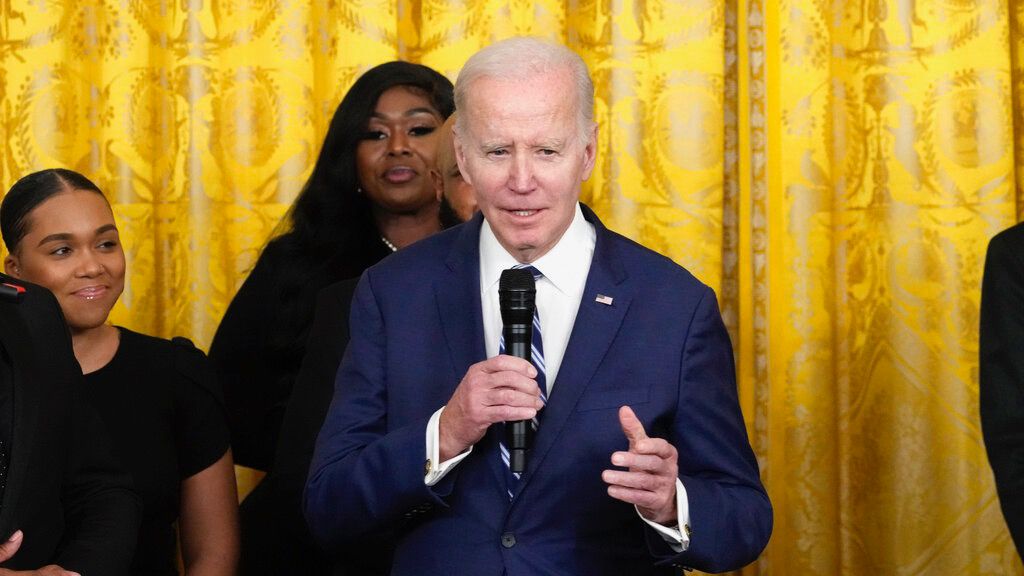The White House reaffirmed its commitment to honor the history of Black Americans on Monday, the same day it vowed to fund infrastructure powering Black futures across the country.
“It’s important to say from the White House for the entire country to hear: History matters. History matters and Black history matters,” President Joe Biden said Monday evening at a Black History Month reception in the East Room of the White House.
“Look, we can’t just learn what we want to know," the president continued. "We learn what we should know. We have to learn everything: the good, the bad, the truth and who we are as a nation. That’s what great nations do, and we’re a great nation.”
The White House’s guests on Monday evening included more than three dozen members of Congress, a handful of cabinet members, and the presidents of the “Divine Nine” historically Black fraternities and sororities — leaders of a group that Biden credited for its influence in their communities, though in his own way.
“I want to thank you, by the way. You know, I may be a white boy, but I’m not stupid — I know where the power is,” he said to an outburst of laughter from across the room.
Biden also promised to ensure that Black and brown businesses, as well as other minority groups, would be better represented among government contractors, vowing to ensure that 50% of every contract he awards as president will go to Black and brown small businesses. That, he said, will effectively bring an additional $100 billion in federal contracting money to those communities.
The White House’s annual Black History Month reception came the same day that Vice President Kamala Harris announced that last year’s Bipartisan Infrastructure Law — which included a program seeking to make high-speed internet access available and affordable for all Americans — would also invest $175 million toward internet infrastructure at historically Black colleges and universities.
Harris made the announcement at Benedict College, an HBCU in Columbia, S.C., which will receive $3 million from the program, “so that here at Benedict, when students are waiting for the Comet bus, they can open up their laptop and keep studying for their chemistry midterm,” she said.
Speaking Monday night ahead of the president, Harris took time to "celebrate all of those who, through courage and conviction; through resistance and resilience; from bold discoveries and cutting-edge research, to arts and music, and a myriad of other disciplines, advanced freedom, liberty, and opportunity for the benefit of all Americans."
"We celebrate legends whose words and their work inspire millions and millions not only in our country, but around the world," she continued.
Harris also took time to honor those who, she said, "are less well-known," citing individuals from the abolitionist movement, Tuskegee Airmen and Freedom Riders "to those who continue to make impact as faith leaders and activists, teachers and small-business owners."
"All of the hardworking people who inspire our children to dream with ambition and aspiration, to determine their own future, and live up to their God-given potential," Harris continued. "It is those stories that remind us that Black history is American history. Living history. Breathing history. History that we create every day. And history that we then must teach and celebrate. A history that helps us to understand how the past has influenced the present and potentially our future."
"And let us all be clear: We will not, as a nation, build a better future for America by trying to erase America’s past," she added.



